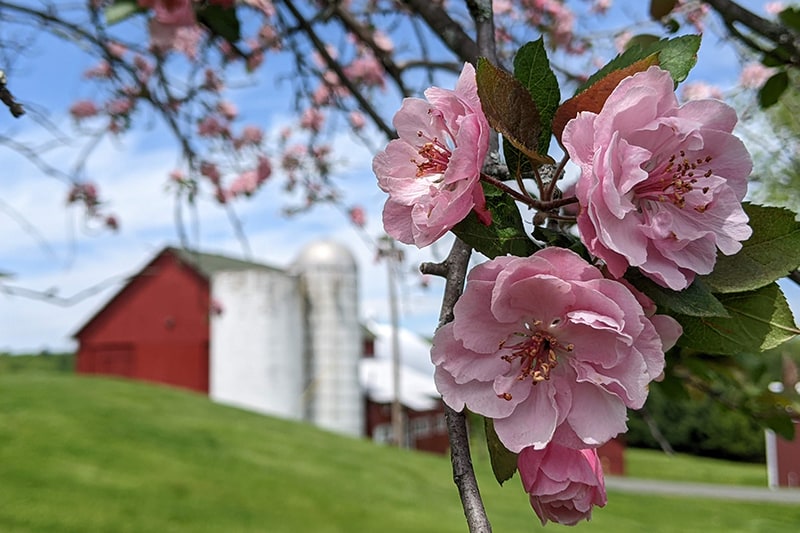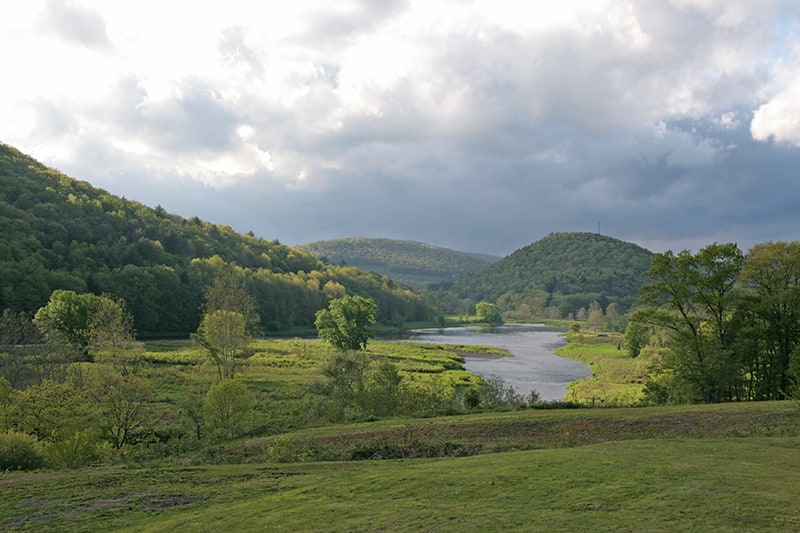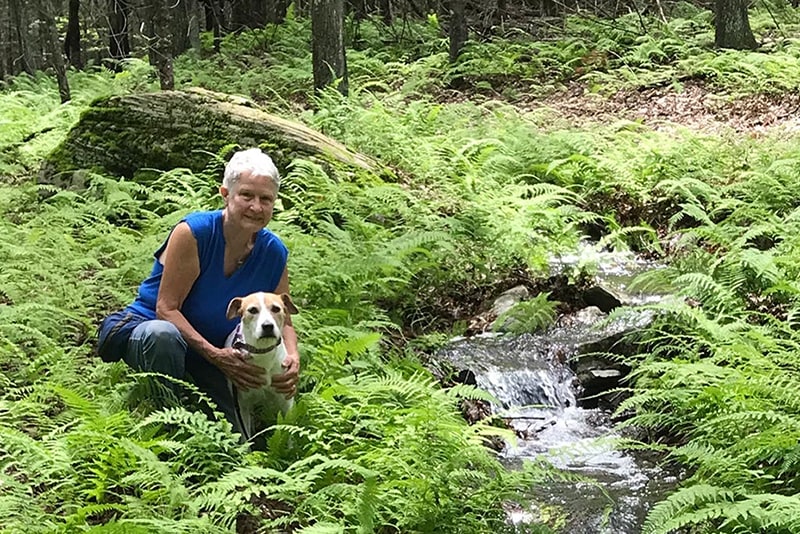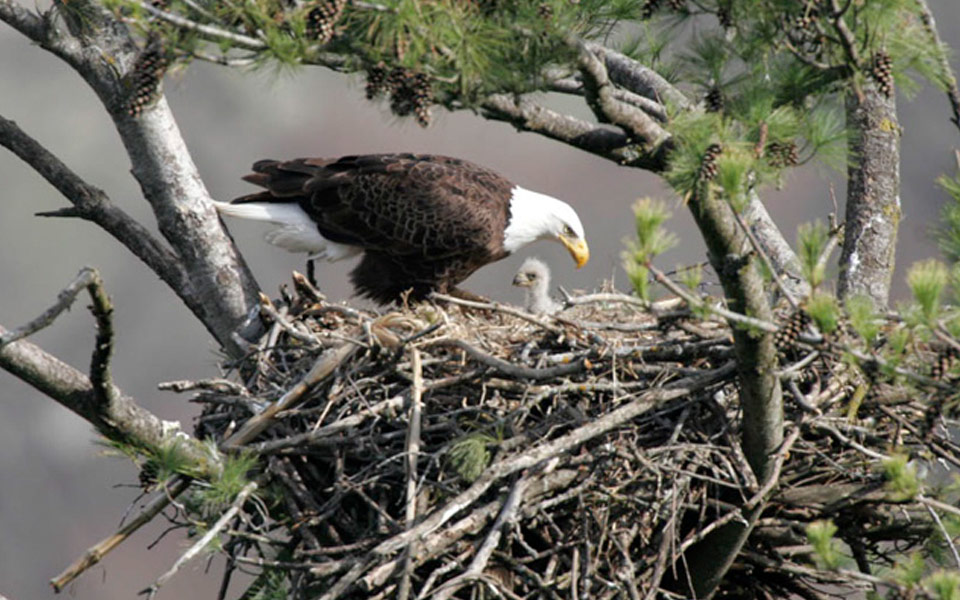Lemons Brook Farm: Protecting a Childhood Home
[div id=key-value-images]
[end-div]
It just so happens that Lou Barr, a former marine biologist, grew up in Kauneonga Lake, NY, where his mother worked at the local post office for many years. He loved to roam the woods around his family home, hunting, trapping and fishing. “I spent every moment I had outside. That was all that interested me. When school was over, I came home and walked the land. Of course, in my growing up days, I never thought about whose land was whose. I just went as far as I could reach.”
Miraculously, much of the land that Lou wandered over is still pristine, owned by him and some of his cousins. Yet he is the first one to protect any of this land.
Barr’s property spans both sides of Segar Road, encompassing not only his family’s original 52 acres but another 67-acre parcel previously owned by a farm family named Segar. Lou and his family stayed with the Segars when they first came here as summer people back in the 1950s. The rolling farmland is beautiful and excellent for cultivation, and the woods provide valuable habitat for a myriad of wildlife. And his land is only a few miles from the Bethel Woods Performing Arts Center, the site of the 1969 Woodstock Festival. As Lou recalls, “Woodstock had a huge effect—when it happened, my folks were totally pinned down here for days…everything was just full, they couldn’t move a car.”
Lou learned about the Delaware Highlands Conservancy in the 1990s, but his elderly mother had a hard time understanding the concept of a conservation easement. So Lou bided his time, and he didn’t pressure her about it. After she died at the age of 98, Lou and his two daughters, Valerie and Heather, inherited the family property. This gave Lou the opportunity to go ahead with his plans to protect the family land in perpetuity. “I don’t want development. The easement allows for building on the land around the existing house, and on two other small parcels (called “building envelopes”) to make the land more saleable. “I got some very good advice from different people [at the Conservancy] on how to handle this thing,” says Lou. Asked what is special about his land that makes him want to preserve it, he replies, “If I had the money, I would preserve every piece of natural land in the world. This is the piece I have, so that’s what I’ll protect…I have tremendous devotion to what’s wild.”
The protection of this property was made possible by the New York State Conservation Program, a program supported by the NYS Department of Environmental Conservation and the Land Trust Alliance. The program is an innovative public-private partnership that provides competitive matching grants for qualified land trusts throughout New York State, thanks to the Environmental Protection Fund and our local representatives. “I am delighted that the Delaware Highlands Conservancy received this grant funding to protect Mr. Barr’s property,” said Aileen M. Gunther, Assembly Member for the 98th AD. “I want to thank Mr. Barr and his daughters and congratulate him on being the first to protect his land for future generations.”
Lou’s protection of his 119 acres is especially significant because of the pristine nature of the land, consisting of woodlands, open fields, and important wetlands. It also sets a precedent for other landowners in the area, who may be encouraged to see the value of protecting their land in a similar way. As the Town of Bethel celebrated its Bicentennial in 2009, it also celebrated its first property to be permanently protected by a conservation easement, thanks to the legacy Lou and his daughters have left behind.
By Barbara Lewis














